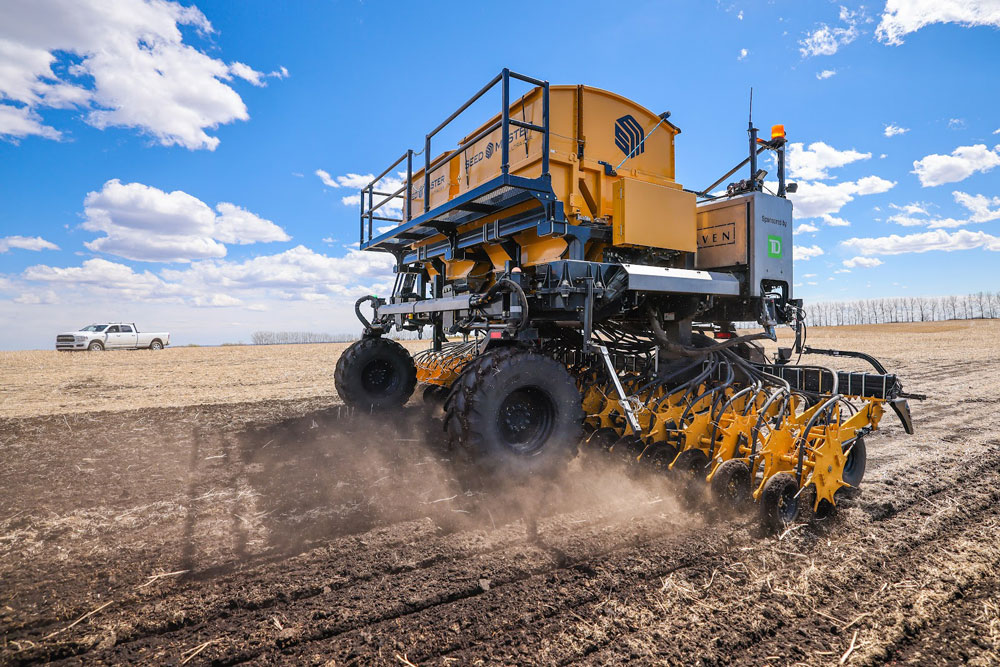Researchers at Olds College of Agriculture & Technology and CNH have broken new ground by releasing a study that establishes a new way to evaluate future efforts to develop autonomous farm equipment.

The peer-reviewed paper, Autonomous Agricultural Equipment Evaluation for Broad-Acre Crop Production, has been published by the American Society of Agricultural and Biological Engineers (ASABE).
Congratulations to the following co-authors: Roy Maki, research project manager at Olds College Smart Farm, who led the study; Sofia Bahmutsky and Ashutosh Singh, data scientists at Olds College Centre for Innovation (OCCI); and Travis Burgers, research engineer at CNH.
The paper quantified the efficiencies of autonomous agricultural operations using four years of research at the Smart Farm. The project started in 2020 with the DOT power platform, which was rebranded in 2021 as the OMNiPOWER platform, and ended in 2024.
The research team compared in-field performance of an autonomous system to conventional machines for seeding, spraying and spreading operations. They also developed an innovative efficiency metric to evaluate performance.
New ground was broken with the formation of a baseline methodology for autonomous broad acre study and evaluation. New terms like route efficiency (RE) were created and defined as key indicators to describe autonomous equipment.